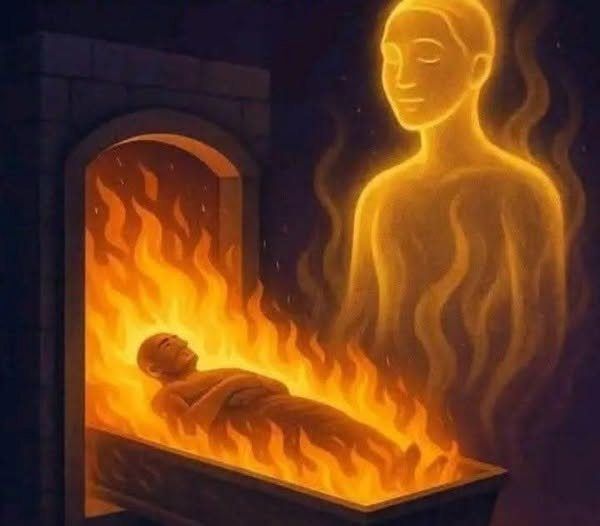The topic of cremation has long stirred debate within religious communities, with countless believers looking to Scripture for clarity on whether the practice is acceptable in the eyes of God. For centuries, burial was considered the natural and most reverent way of laying loved ones to rest in Christian traditions. This preference grew out of cultural and spiritual associations with dignity, resurrection, and respect for the body. Yet, as cremation has become increasingly common across the world, questions continue to resurface: does the Bible forbid it, and is it truly a sin?
At the heart of this discussion lies a simple but profound belief—that the human body is not just physical matter. In Christianity, the body is regarded as the temple of the Holy Spirit, something holy that deserves to be treated with honor. From the earliest biblical accounts, burial reflected this sacred perspective. Abraham, Isaac, Jacob, and Joseph were all laid to rest in tombs or caves. Their burials carried more than practical purpose; they were spiritual acts of faith, symbolizing hope in God’s promises of resurrection and eternal life. This pattern culminates in the New Testament with the burial of Jesus Christ himself. His body was prepared with care, wrapped in linen, and placed in a tomb. For many Christians, this becomes the ultimate example of how the faithful should be treated after death.
Those who oppose cremation point out that the Bible never presents it as an honorable practice. Instead, the few references to bodies being burned are tied to judgment or disgrace. In 1 Samuel 31, for instance, the men of Jabesh Gilead burned the bodies of Saul and his sons after battle—not as a tribute, but seemingly to protect them from desecration. Likewise, in Amos 2:1, God condemns the Moabites for burning the bones of the king of Edom, treating it as an act of dishonor. Such passages are often cited to argue that cremation carries negative spiritual overtones, associated with punishment rather than respect.
Adding to these concerns is the symbolism of fire in the Bible. Fire frequently represents God’s judgment or wrath—whether in the destruction of Sodom and Gomorrah, the consuming of sacrifices, or the eternal fire reserved for the wicked. For some believers, connecting the human body, created for resurrection, with the imagery of fire feels troubling. To them, cremation risks sending a message of rejection rather than reverence.
Still, many Christians counter that cremation is not condemned in Scripture. They emphasize God’s sovereignty over life and death, insisting that His power is not limited by the condition of a body. Whether a person is buried, lost at sea, or reduced to ashes, God’s promise of resurrection remains unchanged. From this perspective, cremation is merely another way of returning to the dust, echoing the truth spoken in Genesis 3:19: “For dust you are, and to dust you shall return.”
Different Christian traditions reflect this tension in practice. The Roman Catholic Church, which once forbade cremation outright, lifted its ban in 1963, though it still requires that ashes be treated with dignity—kept in sacred places rather than scattered or stored at home. Many Protestant denominations, meanwhile, allow believers to decide for themselves, emphasizing that God sees the faith and intent behind the choice more than the method itself. Practical realities—like the rising costs of burial, limited cemetery space, and shifting cultural norms—have also made cremation an increasingly accepted option.
Yet even with these changing views, the conviction remains strong for many that burial best expresses Christian hope. To them, it connects believers with the faithful of Scripture and affirms confidence in Christ’s resurrection. Others, however, see cremation as no less faithful, trusting that God’s power ensures resurrection regardless of what becomes of earthly remains.
In the end, the debate over cremation is less about rules and more about how people wrestle with life, death, and the sacredness of the body. For some, it is a deeply spiritual act that must reflect biblical precedent and tradition. For others, it is a practical decision that does not diminish God’s eternal promise. What both sides share is a desire to honor the deceased in a way that shows reverence for God’s creation and confidence in His power to renew all things.
Ultimately, the Bible’s central message is not about the specific method of handling the body after death. It points instead to the greater hope found in Christ’s resurrection. For Christians, whether buried or cremated, that hope goes beyond the grave—reminding them that the body, however it returns to dust, is destined for renewal in the life to come.
